The Action were an English band of the 1960s, formed as the Boys in August 1963, in Kentish Town, North West London. They were part of the mod subculture, and played soul music-influenced pop music.

David Bowie is the debut studio album by the English musician David Bowie, originally released in the United Kingdom on 1 June 1967 through Decca subsidiary Deram Records. Produced by Mike Vernon and recorded from November 1966 to March 1967 in London, the album followed a string of singles Bowie released for Pye Records that failed to chart. Vernon hired numerous studio musicians for the album's sessions; Bowie and his former Buzz bandmate Derek Fearnley composed music charts themselves using a musical guidebook.
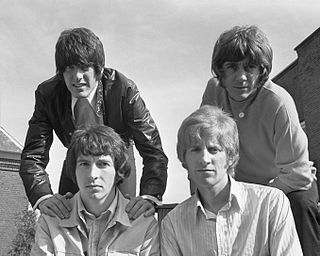
Honeybus were a 1960s pop group formed in April 1967, in London. They are best known for their 1968 UK top 10 hit single, "I Can't Let Maggie Go", written by group member Pete Dello who also composed their previous single "(Do I Figure) In Your Life", later recorded by Dave Berry, Ian Matthews, Joe Cocker, Dave Stewart, Paul Carrack, Samantha Jones, Dana, Pierce Turner, and Euros Childs.
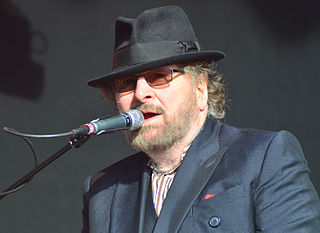
Charles Nicholas Hodges was an English musician and singer who was the lead vocalist of musical duo Chas & Dave.

"I Dig Everything" is a single by the English singer-songwriter David Bowie. It was his final single for Pye Records, released on 19 August 1966. The track was originally demoed with Bowie's then-band, the Buzz, but producer Tony Hatch was unhappy with their efforts and replaced them with session players. It is a pop song that musically and lyrically reflected the mid-1960s Swinging London era. The single was another commercial failure and resulted in the label dropping him. The original recording was included on the Early On (1964–1966) compilation in 1991.
Giles, Giles and Fripp were an English rock group, formed in Bournemouth, Dorset in August 1967. It featured brothers Michael Giles on drums and vocals and Peter Giles on bass guitar and vocals, and Robert Fripp on guitar. The band's music showed an eclectic mix of pop, psychedelic rock, folk, jazz, and classical influences. The group eventually evolved into pioneering progressive rock band King Crimson.

David Sinclair is a British keyboardist associated with the psychedelic/progressive rock Canterbury Scene since the late 1960s. He became famous with the band Caravan and was responsible as a songwriter for creating some of their best-known tracks: "For Richard", "Nine Feet Underground", "The Dabsong Conshirtoe", "Proper Job/Back to Front".
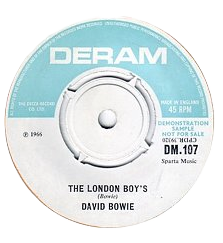
"The London Boys" is a song by the English musician David Bowie. It was first released as the B-side of the single "Rubber Band" in the United Kingdom on 2 December 1966. It was originally written and demoed in 1965 with the Lower Third for potential release as the artist's debut single for Pye Records but it was rejected. After a year of rewrites, he recorded a new version with a new band, the Buzz, which helped secure him a record contract with Decca-subsidiary Deram Records. Unlike the A-side, "The London Boys" retains the Mod feel of Bowie's previous singles. The dark lyrics concern a 17-year-old who leaves home for London and becomes embroiled in the Mod scene, turning to pills to fit in. Like his previous singles, it failed to chart. Decca later issued it as an A-side in 1975.
Leslie David Reed was an English songwriter, arranger, musician and light-orchestra leader. His major songwriting partners were Gordon Mills, Barry Mason, and Geoff Stephens, although he wrote songs with many others such as Roger Greenaway, Roger Cook, Peter Callander, and Johnny Worth.

Early On (1964–1966) is a compilation album by David Bowie, released in 1991. It is notable as the first and only attempt to compile a comprehensive collection of all of Bowie's pre-Deram material and encompasses multiple labels including Vocalion, Parlophone, and Pye. Tracks three and four are alternate versions to the official singles, while "Do Anything You Say" is also a different mix from the normal single. There are also five unreleased songs included that came from Shel Talmy's collection. Talmy produced Bowie's second and third single. A cassette version was released; however this omitted "Liza Jane", "Louie, Louie Go Home", and "Good Morning Girl".
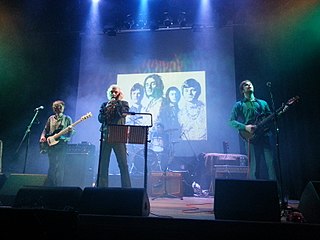
Kaleidoscope are an English psychedelic rock band from London that originally were active between 1967 and 1970. The band's songs combined the elements of psychedelia with whimsical lyrics. The band were also known at various times as The Sidekicks, The Key, I Luv Wight and Fairfield Parlour.

Jerry Lordan was an English songwriter, composer and singer. He had three hit singles on the UK Singles Chart before focusing purely on songwriting. Amongst his songwriting credits were the chart hits "I've Waited So Long", "Apache", "Wonderful Land", "Diamonds", and "A Girl Like You".
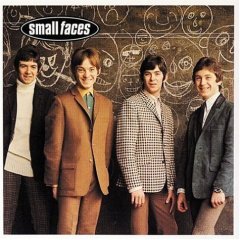
From the Beginning is the first compilation album by the English rock band Small Faces. It was released by Decca Records of group material after the band had left the record label; it consisted of the band's Decca hit singles combined with various unreleased recordings. The album rose to Number 17 in the UK Album Chart.
Thomas Henry Lowther is an English jazz trumpeter who also plays violin.
The Montanas were an English 1960s and 1970s pop rock band from Wolverhampton, England. Though they never found significant success in their home country, they had one moderate hit in the United States.
The Brain Police were an American psychedelic rock band formed in San Diego, California, in 1968. Led by songwriters Rick Randle and Norman Lombardo, the project had a cult following in the West Coast's psychedelic scene. Between touring with notable 1960s musical acts, the Brain Police recorded a single and an album's worth of material but failed to pick up traction from a major record label. Although the demos that originated from these 1968 sessions were bootlegged, the songs saw a proper release in the 1990s.
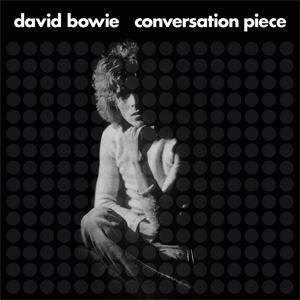
Conversation Piece is a box set by English musician David Bowie, released in November 2019, which contains five CDs featuring recordings made in 1968–1969. The box set includes home demos and BBC sessions, as well as two mixes of the 1969 album Space Oddity: the original 1969 stereo mix, and a new 2019 mix produced by Tony Visconti specifically for the set. The release of the 1969 mix is a repressing of the 2009 remastered CD, which was chosen due to its being mastered to match the original LP release, a priority that was not taken for Parlophone's in-house remaster created for the Five Years (1969–1973) box set in 2015.
"Let Me Sleep Beside You" is a song written and recorded by the English singer-songwriter David Bowie. It was recorded on 1 September 1967 at Advision Studios in London and marked the beginning of Bowie's working relationship with producer Tony Visconti, which would last for the rest of Bowie's career. A departure from the pop and music hall-influenced material of Bowie's 1967 self-titled debut album and other singles for Deram Records, the song displays a more rock-oriented sound with a cello arrangement from Visconti. The impressionist lyrics also depart from Bowie's prior works, describing love using the act of sleeping together rather than through emotional attachment. The song was rejected by Deram for release as a single, purportedly due to the risqué title. It remained unreleased until 1970's The World of David Bowie compilation.
"Silly Boy Blue" is a song written and recorded by the English singer-songwriter David Bowie. Originally demoed in 1965 as a mod-influenced track about a teenage runaway, it was revised in 1966 with new lyrics and released on Bowie's self-titled debut album in June 1967. This version reflects Bowie's fascination with Tibetan Buddhism, featuring various spiritual and geographic references in the lyrics and varied instrumentation such as a trumpet, cello and Chinese gong. Bowie remade the song twice during his stint with the Riot Squad in April 1967: as an instrumental for live performances and acoustically, which has appeared on compilations.
"Karma Man" is a song written and recorded by the English singer-songwriter David Bowie. It was recorded on 1 September 1967 at Advision Studios in London and marked the beginning of Bowie's working relationship with producer Tony Visconti, which would last for the rest of the artist's career. The song expresses Bowie's growing interest in Tibetan Buddhism, concerning a character who is put on display as a "freak" in a carnival tent. The music reflects the Buddhist themes and was likened to the works of the Beatles. Initially proposed as a B-side, it remained unreleased until The World of David Bowie compilation in March 1970. Bowie performed the song during two of his BBC radio sessions, one of which was released on the 2000 compilation Bowie at the Beeb.











